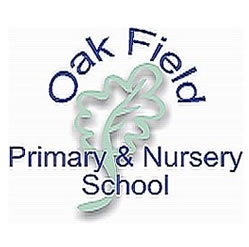
Organisation: Oak Field Primary School
Intervention: Catch Up® Literacy
Submitted by: Sarah Di Tomaso
Background
Oak Field Primary School is a happy, friendly school situated in the heart of the Gibbonsdown estate on the eastern outskirts of the town of Barry.
It provides education for pupils between the ages of three and eleven. There are currently 109 pupils on roll including 30 in nursery provision. The school has five classes in mixed year groups.
Currently, there are no pupils within the school for whom English is an additional language, though many have significant speech and language difficulties on entry to the school. The ethnic background of nearly all pupils is white British.
Many pupils come from socially and economically disadvantaged homes. The children’s level of attainment on entry to the school is significantly lower than the average for the local authority. While the school pupil intake represents the full range of abilities, more able pupils are a significant minority.
Implementation
Learners are selected for the Catch Up® intervention using standardised tests (YARS and NFER) together with the teacher assessment. Their progress is tracked half-termly to find their ratio gain and to help with the decision of continuing with the intervention or to withdraw them from it. They are timetabled weekly to receive 2 x15 minute individual sessions and a group ICT session accessing the digital games online.
At the start of each term, the Catch Up® learners set their own busy bee learning targets and review these at the end of each term. The learners also complete a ‘Preview to Catch Up®’ and a ‘Review of Catch Up®’ questionnaire.
Each learner has an individual sticker chart and a sticker is awarded for every session they attend. The sticker chart is then taken home when full or when the Catch Up® intervention is completed. The learners are encouraged throughout the sessions with positive praise and constructive follow up comments. If a learner changes reading level, they are awarded a reading certificate and for an exceptional session, they will be rewarded with a ‘Star today’ certificate. Certificates for ‘graduating’ from Catch Up® are also presented in celebration assemblies at the end of each term.
Parents are informed when a learner begins Catch Up® Literacy and we write to introduce the intervention and offer guidance and any further information they may need. Information is also available on our school website with a link to the Catch Up® website. The Catch Up® Parent Link leaflets are available. Learner’s individual Catch Up® booklets are made available on parents' evenings each term for the parents to see the progress made.
To ensure high quality delivery, we monitor each other's session logs fortnightly, with formal session observations once a month. All of which are formally recorded and forms kept in our comprehensive Catch Up® Literacy file.
Case Study 1 - Catch Up® Literacy
Child A was a very socially confident child but did not show the same level of confidence in her learning, especially in reading. She would be afraid if asked to read an unfamiliar text or read aloud in front of peers. Her reading age was 5 years and 9 months, 22 months below her chronological age.
She was very shy when first attending the Catch Up® sessions, speaking very quietly, partly as a result of her low hearing. She wore a hearing aid which contributed to her lack of confidence and she believed that it affected her learning.
Through the year her confidence grew, she read more clearly and projected her voice while reading. Her confidence showed in sessions and she used different strategies to decode unfamiliar words. Child A was very happy to attend sessions, increasingly eager to read her next book and had great imagination when discussing a text.
Her reading age at the end of the intervention was 9 years and 6 months, 11 months above her chronological age and similar to that of her class peers. Her parents were extremely pleased with her rapid progress and its effects on her, both educationally and socially.
Case Study 2 - Catch Up® Literacy
Child B enjoyed reading his ‘Tom and Jerry’ books at home, but felt nervous if asked to read any other text, especially non-fiction. He thought everything was easy and this, at times, could lead to him being disruptive in class and being over confident. His reading age was 4 years and 9 months, 18 months below his chronological age. Catch Up® was implemented as a way to narrow the gap.
Child B enjoyed attending the sessions. His over-confident behaviour improved and he became confident in reading aloud and would often read a story to the children in his class at the end of the day. This change in behaviour meant he was chosen to be one of the main reading parts in the school concert. His teacher has noticed an increase in the vocabulary in his story writing. He has moved up a National Curriculum level and writes in a neat cursive script.
Child B was always eager to learn and Catch Up® helped to elevate his reading age in such a short time. His reading age is now 7 years and 10 months, 16 months above his chronological age. Providing him with a massive ratio gain of 22.97 and very happy parents!
Aims
To equip the children of Oak Field Primary School with skills and knowledge that will enable them to develop as individuals in their own right.